In 2014, we saw a lot of brutality. Unarmed black men and women were killed by police, women were raped on college campuses and in military barracks…
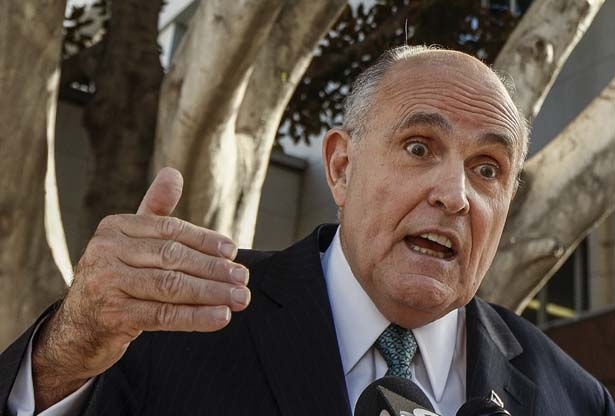
For much of the right-wing media it was payday. Two New York City cops were murdered by a troubled gunman who had allegedly suggested on social media that he’d kill cops…
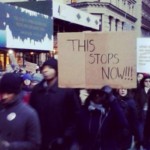
Berkman says social revolutions do not happen by accident, but the same can be said of empires. They are forged out of the deliberate use of greed, theft, deceit, imperialism, and ruthless terror.
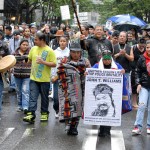
The question that remains, though, is what to do when there is another instance of police brutality that threatens to tear apart yet another community — or even the whole country?
The word “Ferguson” has become synonymous with racism and police brutality in the U.S. today, in the same way that the name “Rodney King” did in 1992. And yet there remains a persistent and reactionary response from some white Americans who vehemently view themselves as the victims and black Americans as “violent thugs” who deserve the treatment they receive from police and the criminal justice system. The doublethink of domination and victimhood is central to the pathology of white supremacy in the U.S. It is used to dupe and confuse us into believing that there is nuance in brutality and justice in murder.
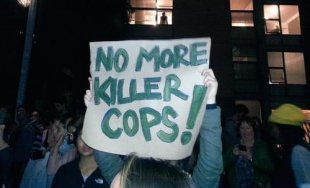
Late Saturday, hours into a protest march over police brutality in Berkeley, Calif., police were looking to make arrests and spotted Kyle McCoy. The young black man, a well-known racial justice activist and University of California-Berkeley alum was arrested on suspicion for felony assault with a deadly weapon. He was taken away and booked, but by Sunday morning he was free on bail. On Monday afternoon, when he was scheduled to be arraigned in court, a bailiff announced the criminal charge had been dropped.
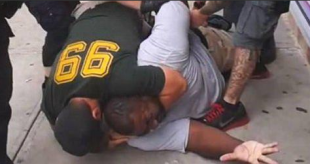
After a grand jury in Staten Island decided not to indict the NYPD cop who choked Eric Garner to death this week, thousands of people across the nation took to the streets in protest. Many of those angry people were white and I am willing to bet most were genuinely outraged. But when it comes to the issue of “feeling our pain,” white people just can’t go there with us.
Suddenly, it feels like the 1960s again, with swirling movements for social justice finding inspiration and a powerful common denominator in the struggle for black equality.
Coming just two weeks after the non-indictment of Officer Darren Wilson in the death of Michael Brown, the non-indictment of Officer Daniel Pantaleo in the death of Eric Garner has the feel of a grim serial filled with redundant plot lines—a production that few of us wish to watch but none of us can avoid, and that a great many are complicit in creating. This is not imaginary.
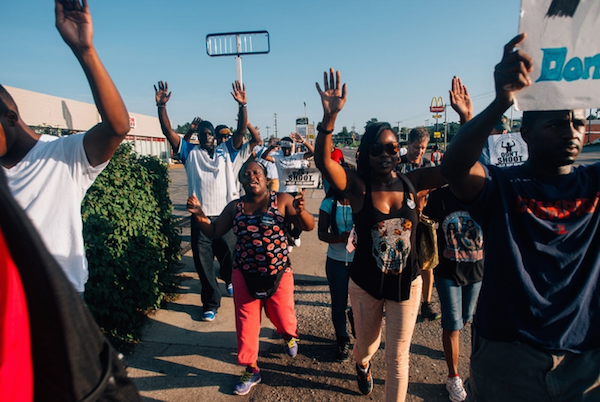
The Ferguson grand jury’s decision not to indict Ferguson police officer Darren Wilson for the killing of African-American teenager Michael Brown is heartless but unsurprising.
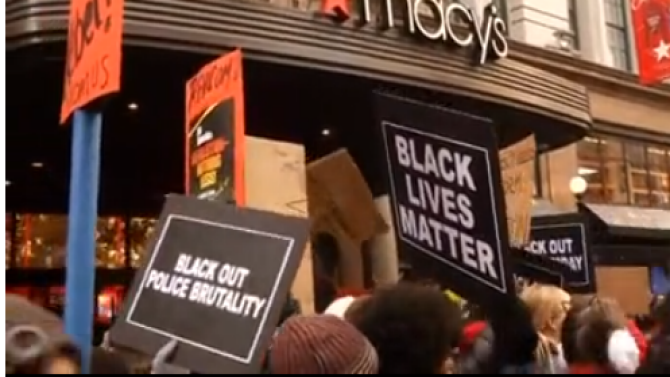
Getting in the black got a bit harder for some retailers this holiday season, thanks to everyone from the retailers themselves to nationwide protests related to Ferguson, Mo.
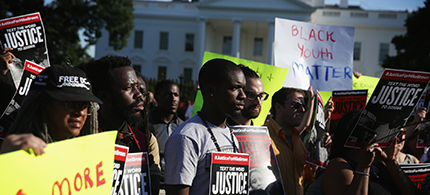
It has been one week since a St. Louis County grand jury failed to indict Officer Darren Wilson for shooting Michal Brown, an unarmed teenager, six times in the head, chest and arms.














